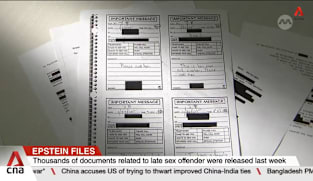He Ting Ru on Law Enforcement and Other Matters Bill
What specific challenges have law enforcement officers faced in dealing with people with mental health conditions that warrant a lowering of the threshold for apprehension? MP He Ting Ru asked this question in Parliament on Tuesday (Apr 2). She raised several concerns. First, lowering the threshold from “reasonably imminent risk” to “reasonable likelihood that danger to life or personal safety may occur” would lead to different standards being applied to those with mental health conditions or illness, which would be discriminatory under United Nations guidelines. Second, whether any timeframes of “reasonable risk” would be applied and if so, what they are. Third, under what circumstances background checks for a history of mental disorder will be carried out and what records will be referred to. Fourth, what safeguards, guidelines or training will be available to police officers. Finally, what options are available to those who believe they were erroneously detained or subjected to excessive force or trauma. Ms He said she was worried about the amendments unnecessarily perpetuating stigma against people with mental health conditions. She also questioned if the police are best placed to respond to such situations. She noted that in recent years, many countries have taken steps to implement alternative strategies to provide support and de-escalate incidents. She suggested expanding the Crisis Response Team to respond not only to cases involving the risk of suicide but also to people experiencing mental health crises more generally. This could also help reduce the strain on the police, she said.
What specific challenges have law enforcement officers faced in dealing with people with mental health conditions that warrant a lowering of the threshold for apprehension? MP He Ting Ru asked this question in Parliament on Tuesday (Apr 2). She raised several concerns. First, lowering the threshold from “reasonably imminent risk” to “reasonable likelihood that danger to life or personal safety may occur” would lead to different standards being applied to those with mental health conditions or illness, which would be discriminatory under United Nations guidelines. Second, whether any timeframes of “reasonable risk” would be applied and if so, what they are. Third, under what circumstances background checks for a history of mental disorder will be carried out and what records will be referred to. Fourth, what safeguards, guidelines or training will be available to police officers. Finally, what options are available to those who believe they were erroneously detained or subjected to excessive force or trauma. Ms He said she was worried about the amendments unnecessarily perpetuating stigma against people with mental health conditions. She also questioned if the police are best placed to respond to such situations. She noted that in recent years, many countries have taken steps to implement alternative strategies to provide support and de-escalate incidents. She suggested expanding the Crisis Response Team to respond not only to cases involving the risk of suicide but also to people experiencing mental health crises more generally. This could also help reduce the strain on the police, she said.



















